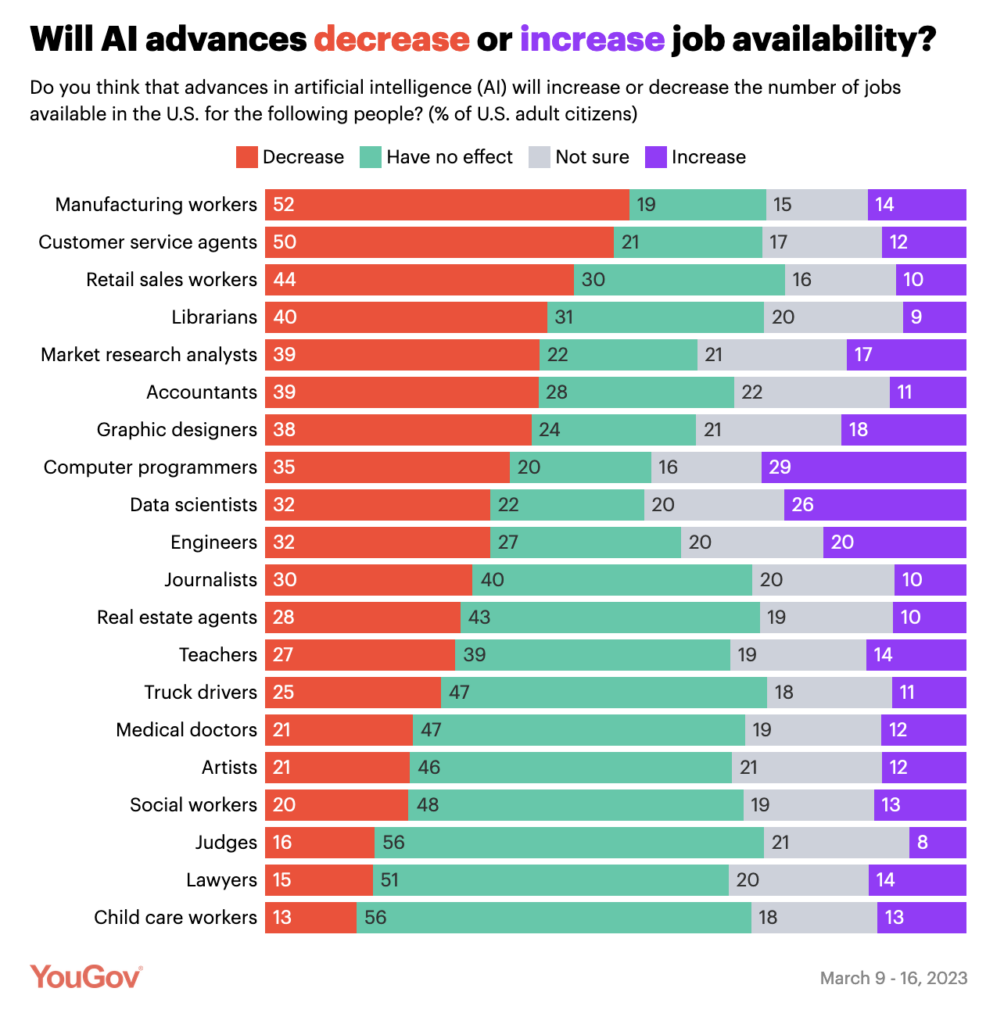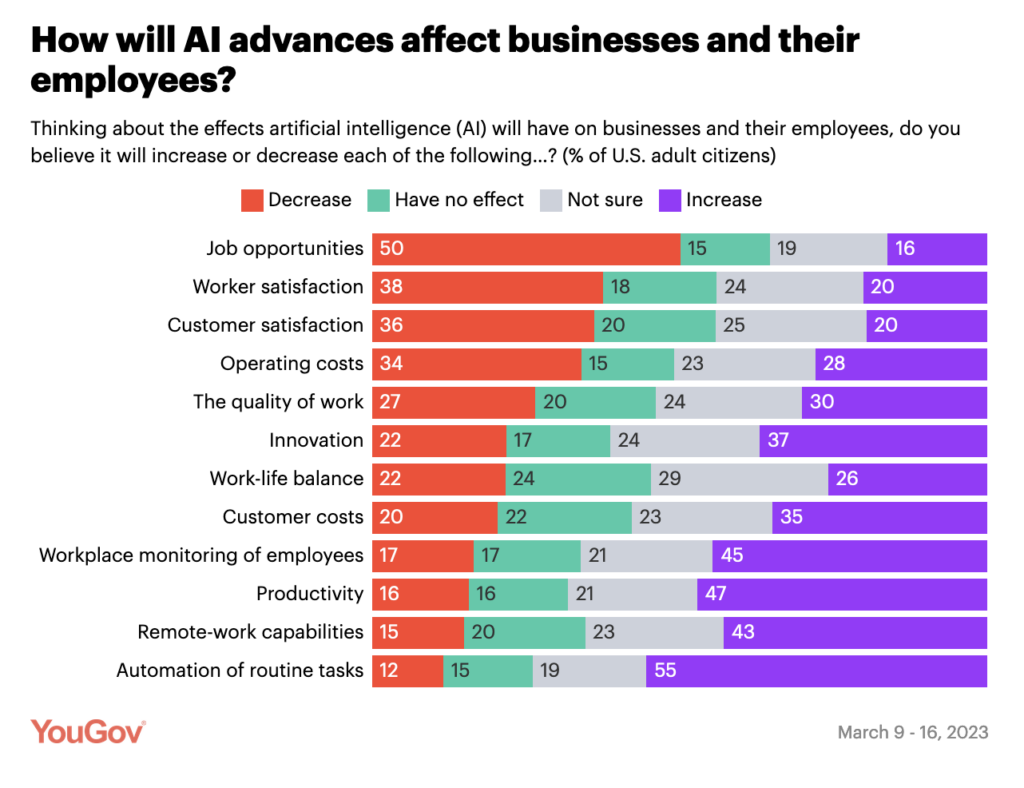A loose poll – please don’t roll your eyes – of 2,000 adults in the US about the likely impact of artificial intelligence (AI) on the jobs market says, basically, that nothing good will come of it, at least insofar as the availability of paid work goes. Out of 20 different occupations, in both the private and public sectors, they reckon the likelihood of work will decrease with the introduction of AI in every one. There will be fewer jobs, says the American public.
Asked by consumer research outfit YouGov about the impact of AI on their own industries, the answer was the same: categorically,work opportunities will reduce, workers say – and reduce faster for older workers. In fact, the only respondents who think there will be more paid work as a result of AI are those working with AI tools. On average, they say AI will reduce their work opportunities (says 50 percent; versus 16 percent) and job satisfaction (38 percent; 20 percent).
Notably, it will also (!) reduce customer satisfaction (36 percent; 20 percent) and company operating costs (34 percent; 28 percent), they mostly reckon. The best upsides of AI, according to the poll, will be quality of work (27 percent project a decrease; 30 percent project an increase) and innovation (22 percent; 37 percent), and industrial drivers like surveillance (17 percent; 45 percent), productivity (16 percent; 47 percent), and automation (12 percent; and a high-score 55 percent).
The most likely to suffer in the job market are (in order of suffering): manufacturing workers (52 percent say opportunities will decrease; 14 percent say the opposite), customer service agents (50 percent; 12 percent), retail staff (44 percent; 10 percent), librarians (40 percent; nine percent), market analysts (39 percent; 17 percent), accountants (39 percent; 11 percent), and graphic designers (38 percent; 18 percent).

A middle band of tech-types is (almost) on the fence, perhaps; computer programmers (35 percent; 29 percent), data scientists (32 percent; 26 percent), and engineers (32 percent; 20 percent) all think work will be harder to come by, on balance. Indeed, everyone is gloomy – from journalists (30 percent; 10 percent), to teachers (27 percent, 14 percent), to truck drivers (25 percent; 11 percent), and even artists (21 percent; 12 percent).
AI will change work for everyone, the verdict goes. There are two mitigating qualities, the survey finds: youth and education. Seventeen percent of 18-29 year-olds say work opportunities will increase with AI (versus a still-dominant 28 percent who think they will decrease. The balance tilts through the ages, with over-45s generally down on their chances; around six percent see a career path in the age of AI.

Similarly, 20 percent (versus 27 percent, still) of people reckon a postgraduate degree will increase job prospects, whereas only eight percent think school leavers will find more work in a tech-smart future. It makes for grim reading, but its reflection of the public mood is hardly surprising – and something the tech industry needs to address. Half of Americans (50 percent) think the government should regulate AI in the workplace (versus 24 percent).
Writing in a blog post, Taylor Orth, a data journalist for YouGov, commented: Americans see good news and bad news. They’re more likely than not to expect AI to increase automation of routine tasks, productivity, and innovation. [But] they’re more likely than not to expect AI to decrease job opportunities, worker satisfaction, and customer satisfaction. Americans are more likely than not to expect AI to decrease operating costs, but the reverse is true for consumer costs.”

